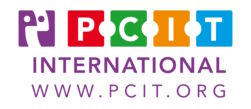What is PCIT?
Parent Child Interaction Therapy (PCIT) is an evidenced-based treatment for young children with behavioral difficulties. PCIT is well suited for online therapy. Treatment is short-term (with a clear beginning, middle, and end) and focused first on developing warmth, enjoyment, and security in the parent-child relationship. Strengthening the parent-child relationship often results in increasing children’s positive behaviors and softening some of the difficulties.
PCIT also helps parents develop a consistent and effective discipline technique. These skills help to manage children’s most difficult behaviors, increase their toleration of limits, and helps them follow-through on directions.
PCIT is delivered via a live-coaching model, meaning parents are always in the driver’s seat and practice their skills during session with their children, while the therapist observes and provides in-the-moment guidance and feedback via an earbud.
For more information on PCIT, please visit the PCIT International Parent Site or contact Gabriel Corens, LICSW.
Who can benefit from PCIT?
PCIT is designed for children ages 2.5-7. Typical concerns that are appropriate for PCIT include:
- General stress, tension, and lack of enjoyment in the parent-child relationship.
- Children who repeatedly struggle in listening and following directions.
- Refusal to engage in activities, including highly anxious children.
- Disruptive and aggressive behaviors.
- Frequent and/or extended tantrums.
Is PCIT effective?
Yes! PCIT is a very effective treatment with a robust evidence base comprised from over 50 years of research.
PCIT has been shown to have the following impacts:
- Improved child pro-social skills
- Reduced parenting stress
- Improvement in attention
- Improvement in school behaviors
- Improvement in untreated siblings
- Improvement in speech-language skills
The California Evidence-Based Clearinghouse for Child Welfare gives PCIT its highest rating as “well-supported by research evidence.” The American Academy of Pediatrics and the National Child Traumatic Stress Network both recognize PCIT as an effective treatment.
Visit the PCIT International database of research demonstrating effectiveness.
What is a PCIT session like?
PCIT is based on a live-coaching model where the therapist delivers in-the-moment guidance and feedback to caregivers via an earbud. Sessions will last for approximately one-hour, starting with a brief check-in, followed by practice, and ending with a reflection and check-out. The heart of the session is play: as a parent, you will practice the skills you are being taught by playing with your child during each session.
In PCIT, the therapist is all but invisible to your child, meaning the gains of therapy are held within the parent-child relationship and will be sustained once therapy ends. The live-model of coaching ensures therapy isn’t something theoretic. Rather, PCIT ensures parents have an opportunity for supportive practice of what they are learning while the therapist is present to witness successes, struggles, and everything in between.
Is online PCIT effective?
PCIT is very well suited to telehealth thanks to the live-coaching model of treatment. Sessions are based around parents practicing skills with their child while the therapist observes and provides live feedback. In telehealth PCIT, the therapist will observe play through a webcam (e.g. laptop or phone) and communicate to the parent via an earbud.
Additionally, caregivers frequently report that doing PCIT in their home feels natural. It is both the home environment where many difficult behaviors emerge, therefore home is also the best place to practice new skills.

